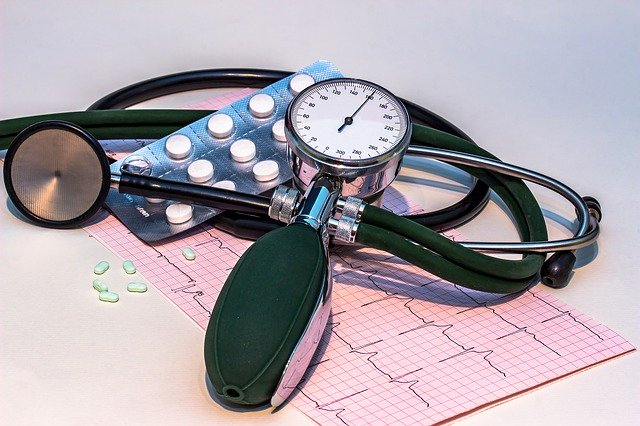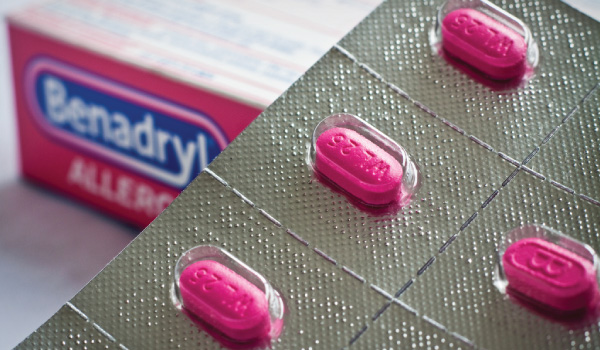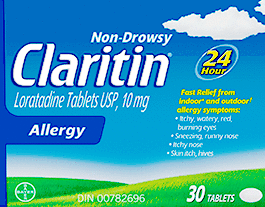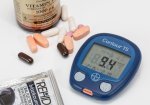Benadryl And High Blood Pressure Association

The relationship between Benadryl and high blood pressure arises from the effect the medication has on blood vessels and also its interaction with hypertension medications.
Benadryl is an antihistamine which is used, among other things, to treat allergy symptoms such as itching and watery eyes, skin rush and running nose. It is also a popular drug to treat colds and is used by millions of people during the cold season to clear stuffy nose.
It is important to keep in mind that Benadryl is a brand name. The active ingredient found in the drug that has a possible effect on blood pressure is diphenhydramine. What this means is that drugs with diphenhydramine can affect blood pressure.
Benadryl is a decongestant which works by constricting blood vessels. If you know anything about high blood pressure or hypertension, you would appreciate that blood vessel constriction causes elevated blood pressure.
While the drug is intended to constrict blood vessels in the nose and sinuses, unfortunately it constricts blood vessels all around the body.
When the vessels are constricted the heart works harder to
push blood through the constricted vessels which results in increased
blood pressure. This increases the risk of damage to important organs such
as the heart and kidneys.
To reduce the risk of constricting the
entire network of veins in your body resulting in elevated blood
pressure, some pharmaceutical drug manufacturers recommend using spray
based nasal decongestants. This helps localize the constriction of the
blood vessels to the nose vs orally taking syrup, tablets, or capsules
which would have the effect of constricting the flow of blood around the
whole body.
Looked at from this perspective, orally administered Benadryl has potential to cause serious
problems in individuals suffering from high blood pressure. It is for
this reason that the drug is not to be used by individuals suffering
from "severe high blood pressure, severe heart blood vessel disease,
rapid heartbeat, or severe heart problems" according to pharmaceutical information on the drug.

Benadryl and High Blood Pressure Medications
The relationship between Benadryl and high blood pressure also emanates from the potential of Benadryl to interact with blood pressure medications. For example, Benadryl may interact with Betablockers which are drugs used to slow down the heart rate in order to reduce high blood pressure.
Betablockers are also used to treat certain heart conditions. Diphenhydramine or Benadryl, as it is better known, may affect how well other medications work or how well Benadryl itself works.

Possible Benadryl Side Effects
The following are some known Benadryl side effects. Keep in mind that the actual side effects will differ from person to person. Some individuals may as well suffer certain side effects which are not necessarily listed here. Whether the side effects are mild or severe will depend on the dosage taken and other factors that may or maybe unknown.
- Constipation
- Dry mouth
- Drowsiness
- Dizziness
- Excitation (especially in children)
- Nausea
- Nervousness
- Thickening of mucus
- Blurred vision or any change in vision
- Confusion
- Difficult or painful urination

|
Alcohol and Blood Pressure |
Return to What Causes High Blood Pressure from Benadryl and Blood Pressure
Return to Hypertension Home Page from Caffeine and Blood Pressure
Disclaimer
Information contained on this website is not meant to replace your doctor's advice.
(c) All Rights Reserved. 2010-2018

Allergy Facts and Figures

- Allergy Affected:- 30% US adults, 40% kids
- Nasal allergy affected:- 50million
- Deadliest reaction in:- African Americans
- Allergy yearly cost:- $80 billion
- Skin Allergies:- 8.8 million kids (2015)
- Top Allergen: Peanuts
- Latex Allergy:- 1% of US Pop
- Allergy Affected:- 30% US adults, 40% kids
- Insect sting Allergy:- 5% US Pop


